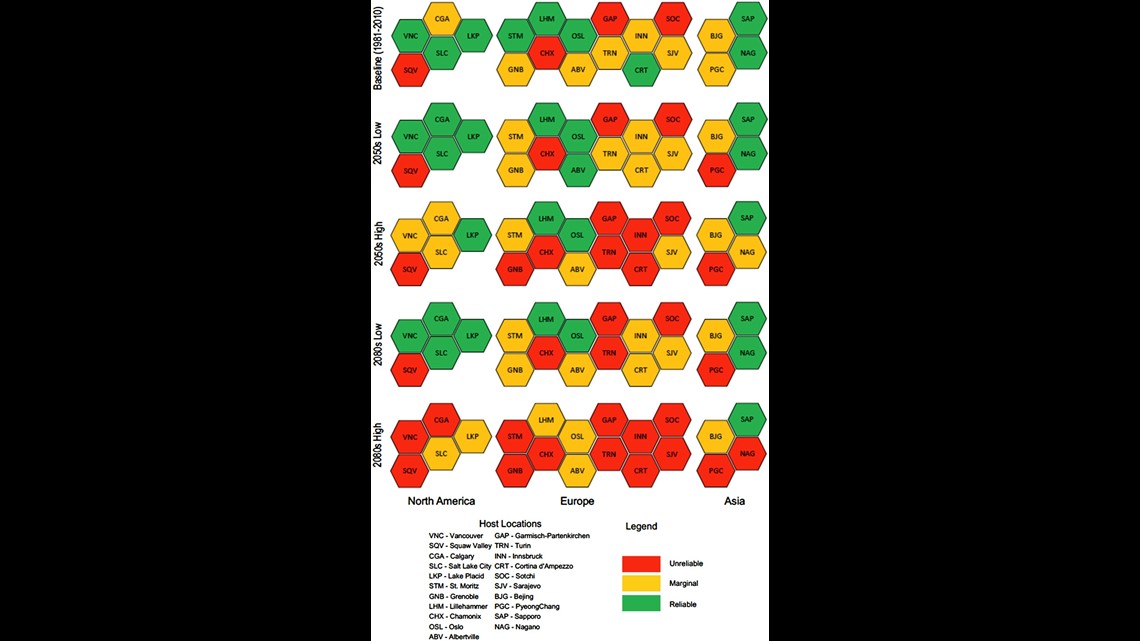ONTARIO, Canada — Researchers from University of Waterloo, in Canada, surveyed 330 coaches and athletes about the impacts that climate change is having on winter athletics.
“94% of people are extremely concerned that climate change is impacting their sport,” said PhD student Natalie Knowles. "These are the ones that are already seeing it affect their daily lives, and livelihoods."
She also said 89% felt changing weather patterns are affecting competition conditions.
Before Knowles got into climate and environmental research, she was also a winter sports athlete. She raced slalom and giant slalom for the University of Denver from 2013 to 2017.
The Pioneers won two national championships during that time.
It was also during her time in Colorado that Knowles first noticed how climate change was becoming a threat to alpine skiing.
"You used to be able to ski reliably in October, but now it's certainly not reliable," said Knowles. "They are struggling to get snow on the runs."
Knowles said that October training sessions in Colorado can now get pushed back to November and even December in some cases.
She said the problem is temperature. Alpine skiers are very particular about their snow. They don't ski on fluffy powder like many recreational skiers prefer.
"Racing alpine you pretty much want icy conditions," she said. "You want hard surfaces and you want that all the way down."
To get course conditions like that, she said groomers will make snow to even the runs, and they would even inject water into the surface of the run to make it even faster.
If the temperature is not low enough, it is not possible to create ideal racing conditions. She said that could mean cancelled events, or a very dangerous racing scenario if they do race.
Knowles co-authored the new research paper which reviewed historical climate data from the 1920s to the present day, and future climate change scenarios for the 2050s and 2080s.
They found the average February daytime temperature of host cities has steadily increased – from 0.4°C at the Games held in the 1920s to the 1950s, to 3.1°C at Games during the 1960s to 1990s, and 6.3°C in Games held in the twenty-first century (including the Beijing Games).
Knowles said if climate change continues at its current pace, only one of the 21 cities that have previously hosted the Winter Olympics would be able to reliably provide fair and safe conditions to host the Olympics again towards the end the century.
Only Sapporo, Japan would have a reliable climate by the 2080s while 14 cities would be unreliable, and six would be marginally reliable.


“I think the exciting thing about this research was there’s a drastic difference between a low emission future and a high emission future.”
The study shows if the emission targets of the Paris Climate Agreement can be achieved, then seven other venues would be reliable, only six would be unreliable and seven would be marginally reliable.
“The Olympics are all about uniting people and bringing them together, and that’s the same thing we need for climate change," said Knowles. "So hopefully it spurs some action, and we start trending in a different direction than the one we’re trending in right now.”
She said their team is now researching venues that have never hosted the Olympics before to see if they would have more suitable weather in the future. She said that Colorado may end up being one of the few suitable locations in North America by the end of the century.
SUGGESTED VIDEOS: Latest from 9NEWS

